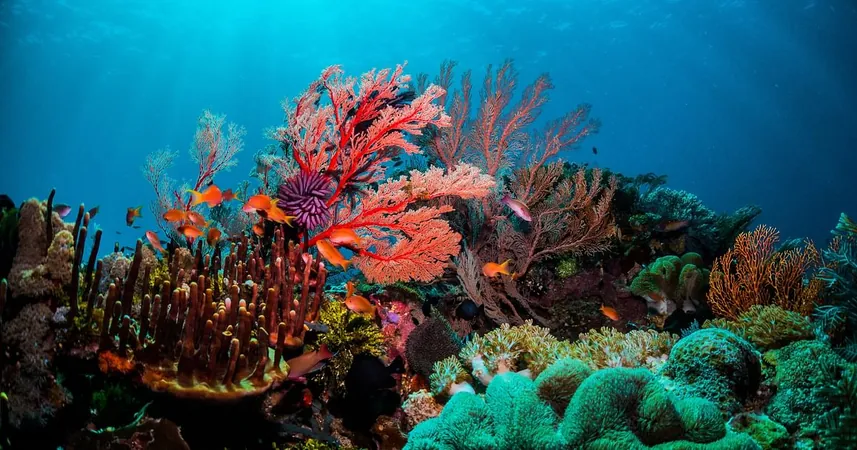
Devastating Marine Heatwaves: A Silent Killer of Ocean Habitats
2024-11-10
Author: Arjun
Recent studies reveal that marine heatwaves are becoming increasingly common and are having catastrophic effects on underwater ecosystems. These extreme temperature events lead to widespread coral bleaching, the destruction of vital seagrass beds, and the decimation of kelp forests. As a result, countless marine habitats are being wiped out, which poses a significant threat not only to biodiversity but also to global fisheries.
Coral reefs, often referred to as the "rainforests of the sea," provide essential services to marine life. When ocean temperatures rise, corals expel the symbiotic algae (zooxanthellae) that give them color and vital nutrients, leading to bleaching. Prolonged bleaching can result in coral death, undermining the entire ecosystem that depends on these vibrant structures.
Similarly, seagrasses play a crucial role in coastal environments by stabilizing sediments, improving water quality, and serving as a nursery ground for various fish species. Unfortunately, marine heatwaves cause substantial die-offs of these critical plants, further endangering marine life and the communities that rely on them for food and livelihoods.
Kelp forests, among the most productive ecosystems on Earth, are also suffering. Rising sea temperatures not only stunt their growth but also promote the spread of pests and diseases that threaten these underwater forests. The loss of kelp forests impacts not just marine life but also coastal communities that depend on these valuable ecosystems for fishing and tourism.
The fisheries sector faces dire consequences due to these changes. With critical habitats in decline, fish populations are diminishing, leading to reduced catches for fishermen worldwide. The economic impact is severe, with many communities facing losses and forced to adapt to changing environmental conditions.
Experts warn that if current trends continue, we could see irreversible damage to marine ecosystems. Urgent action is needed to combat climate change and protect our oceans. The situation calls for a global response to mitigate the impacts of marine heatwaves and preserve these invaluable habitats for future generations.
As we continue to witness the effects of climate change on our oceans, it’s crucial to stay informed and proactive. The health of our planet’s oceans is increasingly at stake – will we act before it’s too late?





 Brasil (PT)
Brasil (PT)
 Canada (EN)
Canada (EN)
 Chile (ES)
Chile (ES)
 España (ES)
España (ES)
 France (FR)
France (FR)
 Hong Kong (EN)
Hong Kong (EN)
 Italia (IT)
Italia (IT)
 日本 (JA)
日本 (JA)
 Magyarország (HU)
Magyarország (HU)
 Norge (NO)
Norge (NO)
 Polska (PL)
Polska (PL)
 Schweiz (DE)
Schweiz (DE)
 Singapore (EN)
Singapore (EN)
 Sverige (SV)
Sverige (SV)
 Suomi (FI)
Suomi (FI)
 Türkiye (TR)
Türkiye (TR)